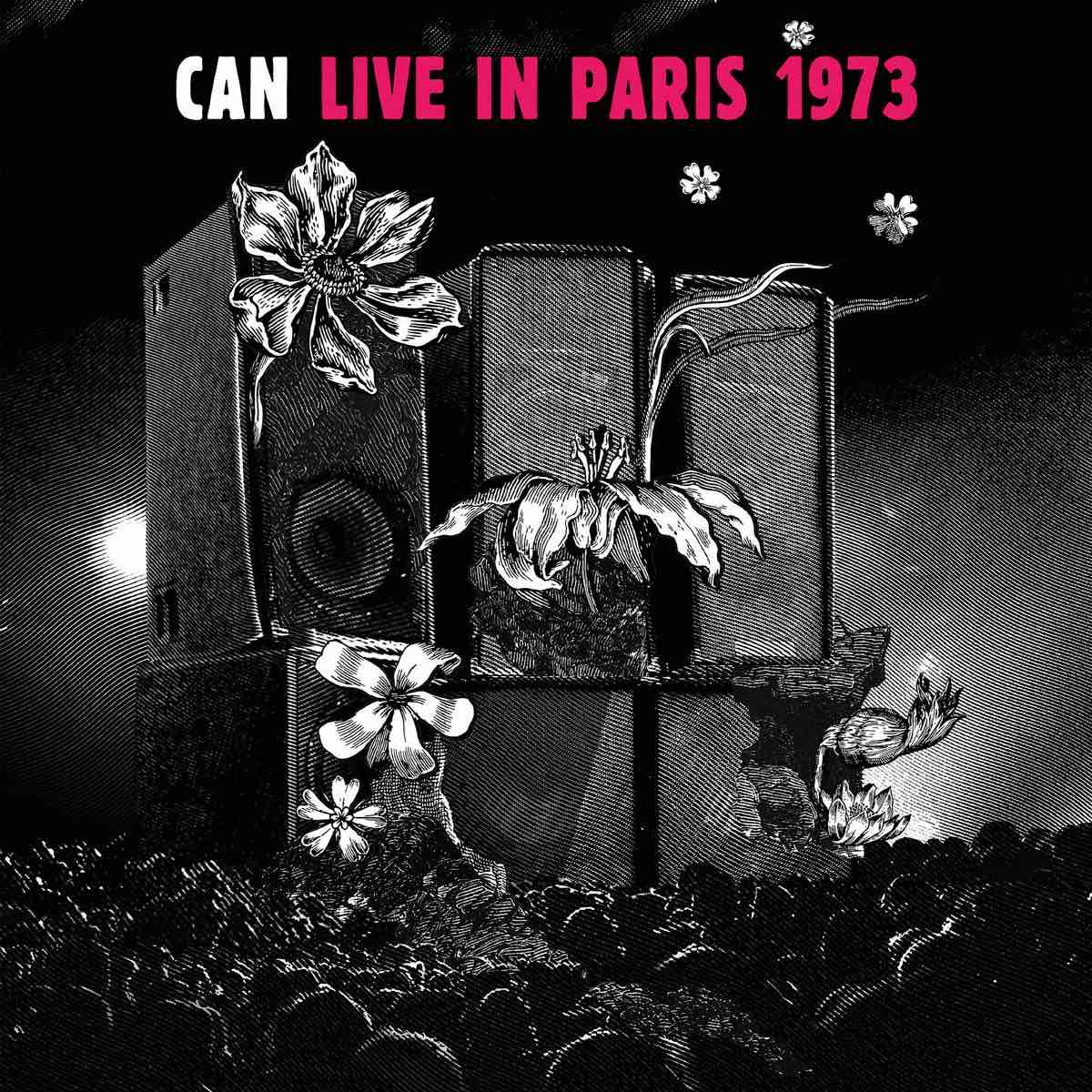Can
Live in Paris 1973
MUTE/FUTURE DAYS/SPOON
Planned as part of Mute Records’ never-before-released Can live series before the February 2024 death of vocalist, lyricist, and all-around Dadaist Damo Suzuki, Live in Paris presents a version of the experimental Cologne-based ensemble in an odd position. Which is truly saying something when you consider that the Stockhausen-inspired team of avant-gardeners Irmin Schmidt, Jaki Liebezeit, Michael Karoli, and Holger Czukay had leapt into the flame of invention—hypnotic, cryptic krautrock—with 1969’s debut Monster Movie.
Meeting and befriending Suzuki while he was busking on the streets of Munich, Can immediately made the wilding-out Japanese poet/performance artist their vocalist and recorded free-flying follow-ups such as 1971’s Tago Mago, 1972’s Ege Bamyasi, and its headily atmospheric 1973 successor Future Days. But Paris’ L’Olympia audience members in May 1973 who expected the chilled, even pleasant moments of Can’s then-new Future Days to unspool were met with Suzuki’s shamanistic vocal and lyrical approach at its fullest improvisational flower as the band stretched out with noisy jam-like elasticity and hypnotic density on the nearly 40-minute-long “Eins.”
Matching Liebezeit’s live drums with a still-primitive drum machine meant that moments such as “Zwei” presented Can in locked-tight, forcefully metronomic groove mode (when let free to roam as he does on “Vier,” Liebezeit rivals Keith Moon for wild intensity). While relatively familiar Can songs such as “Spoon” are mixed into chaotic, elongated jams as mere hints of melody, “Fünf” studies the psychedelic funk of “Vitamin C” and makes it manic. “You’re losing, you’re losing, you’re losing your Vitamin C,” screams Suzuki, pushing himself into prayerful mantra.
Suzuki took Can’s freeform rebel spirit to heart, found the perfect moment to explode, and interacted with his Can-mates in a fashion familiar to fans of saxophonist Anthony Braxton—wriggling and forging new languages within the ensemble’s magically manic brand of communication. And then he married his girlfriend, joined the Jehovah’s Witnesses, and disappeared as quickly as he joined. God bless Damo and the team who found this rare tape that captured the late Suzuki’s aggressive brand of noise and poetry within the confines of Can.







